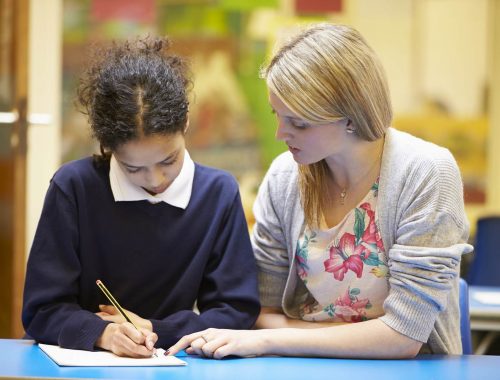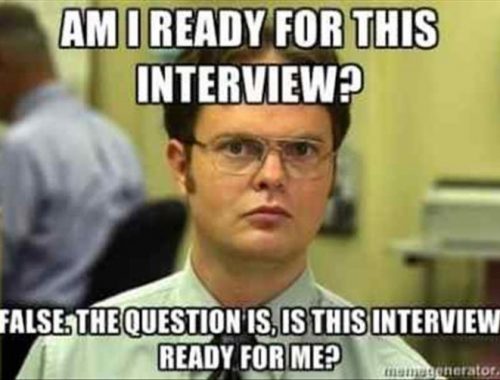Mashed up Memories
“My mammy is going to make the best mashed potatoes this Christmas and I’m going to get a beautiful doll with a red velvet dress”.
This was the sentence that broke me.
Using Gibbs reflective module, I will explain why.

WHAT
Working with adults with learning disabilities is tough. They’re a part of our community that is often overlooked because people simply just don’t want to think about them. According to research by Scope in 2014, “67% of people feel uncomfortable when talking to a disabled person.” (Yeager-Walrath, S. (2021)).
In my placement, I was confronted face to face with adults with extreme learning disabilities. Some were unable to walk, a lot of them were non-verbal, some were blind or deaf as well. Things we take for granted, like the ability to eat solid food, is something some of these adults have never and probably never will experience.
Having worked with children with learning disabilities before, the environment was not much of a shock to me. However, there was one group session in particular that I always found really emotionally challenging. It was the most elderly group in the day centre. As well as suffering from disabilities they had most of their lives such as ASD, they now were also succumbing to the difficulties of aging. A few had even been diagnosed with dementia and Alzheimer’s. Interestingly, studies show that “more than 10% of middle- aged adults diagnosed with autism eventually develop dementia”. (Furfaro, H. (2021)).
“None of us wants to be reminded that dementia is random, relentless and frighteningly common.”
~ Laurie Graham
It was one day on the run up to Christmas, I was chatting to the clients like I usually did after a session. We were talking about our Christmas plans, most of them were going to a family member for dinner. One lady in particular though was especially excited. She kept telling me about the mashed potato her mum made every Christmas and how good it was. Relating back to the food I love to eat at Christmas time, we had a lovely conversation. It was only when she started to describe the beautiful doll with a red velvet dress that her daddy was getting her that it hit me. This lady is 81, it’s highly unlikely her parents are alive. She doesn’t realise this. So why is this lady acting like a little girl when the wrinkles on her skin suggests otherwise?

SO WHAT
Later, I told the story to the lady’s carer who was able to inform me that the lady had indeed been diagnosed with dementia. As someone who is usually quite good at dealing with my own emotions, this really got to me. This poor lady has to relive the grief of losing her parents and never having that mashed potato again, every time she does something as simple as remembering.
“We do not remember days, we remember moments.”
~ Cesare Pavese (Kelly, C. (2021))
This emotional difficulty was one I always knew was going to be part of the job of a music therapist but was an issue I hadn’t given much consideration to up until this point.
I discussed the emotions I was feeling with the music therapist I was working with. I came to the conclusion that my biggest issue was that the main role I felt I had played in my placement was that of a fraud. Here I am surrounded by hard working carers and nurses and yet I’m claiming that shaking a few percussive instruments to ‘She’ll be coming round the mountain’ is also a vital part of a client’s care. It filled me with doubts as to whether music therapy is the career I want to pour so much time into pursuing.

NOW WHAT
To help alleviate fraudulent feelings I wanted to ground my thoughts in research. This is where the idea of music therapy as an interdisciplinary comes in. My placement provider, EveryDay Harmony operates under a person-centred approach to music therapy. This means that music therapists focus firstly on the needs on the client with musical goals coming secondary. They are under no doubt that their role could not cater for every need a client could have. Instead, music therapists “draw on the multi-disciplinary team surrounding the client” (Noone, (2008)).
Relating music therapy as an interdisciplinary back to the emotional experience I had during my placement, I can see how music therapy is just one of the many ways health care professionals can help improve the quality of life of those with learning disabilities. I have drawn comfort from Dr Winnicott’s theory of ‘the good enough mother’ which describes the idea that a mother cannot be there to meet every single need of their child and that if they could it would in fact be counterproductive as the mothers “failure to adapt to every need of the child helps them [the child] adapt to external realities” (Ratnapalan, S. and Batty, H. (2009)). When looking at this theory in the context of healthcare we must note “good enough is not mediocrity. It has to do with rational choices as opposed to compulsive behaviour.” (Ratnapalan, S. and Batty, H. (2009)).
So, while no amount of music therapy will ever allow my client with dementia to taste her mother’s mashed potato again, we can help make her memories less painful. There is so much research into how music and memory works, looking at the NHS website I noted that “there is evidence from scientific studies that listening to music lights up the brain in many places, reaching the parts that others can’t.” (Burns, A. (2018)). This is something I am so excited to research in the future!
Despite the emotional difficulties my placement has brought, it has also inspired me as I’ve seen first hand all the amazing work so many healthcare professionals do everyday which has undoubtedly encouraged me in my journey to becoming a music therapist!

Bibliography
- Burns, A. (2018) Music and dementia: a powerful connector, NHS choices. NHS. Available at: https://www.england.nhs.uk/blog/music-and-dementia-a-powerfulconnector/ (Accessed: April 14, 2023).
- Furfaro, H. (2021) Autism diagnosis often followed by identification of other conditions, Spectrum. Simons Foundation. Available at: https://www.spectrumnews.org/news/autism-diagnosis-often-followed-identification-conditions/#:~:text=Aging%20brain%3A%20More%20than%2010,with%20autism%20eventually%20develop%20dementia.&text=Behavioral%20conditions%20such%20as%20attention,years%20of%20their%20autism%20diagnosis (Accessed: April 12, 2023).
- Gina (2023) Skinny garlic mashed potatoes, Skinnytaste. Available at: https://www.skinnytaste.com/garlic-mashed-potatoes-3-ww-points/ (Accessed: April 22, 2023).
- Kelly, C. (2021) 9 memory loss quotes that Will Inspire you, Walker Methodist. Available at: https://www.walkermethodist.org/blog/9-memory-loss-quotes-that-willinspire-you (Accessed: April 11, 2023).
- Noone, J. (2008) Developing a music therapy programme within a person centred planning framework, Voices. Available at: https://voices.no/index.php/voices/article/view/1772/1532 (Accessed: March 10, 2023).
- Nursing Answers (2018). Driscoll Model of Reflection. [online] NursingAnswers.net. Available at: https://nursinganswers.net/reflective-guides/driscoll-model-of-reflection.php.
- Ratnapalan, S. and Batty, H. (2009) To be good enough, Canadian family physician Medecin de famille canadien. U.S. National Library of Medicine. Available at: https://www.ncbi.nlm.nih.gov/pmc/articles/PMC2654842/#:~:text=A%20good%20enough%20mother&text=starts%20off%20with%20an%20almost,them%20adapt%20t%20external%20realities (Accessed: April 17, 2023).
- She’ll be coming ’round the mountain • jonathan emmett (2021) Jonathan Emmett. Available at: https://jonathanemmett.com/product/shell-be-coming-round-themountain (Accessed: April 24, 2023).
- VTG porcelain girl doll stand red velvet lace blonde hair dress 16″ collectible (2023) eBay. Available at: https://www.ebay.co.uk/itm/154691014097?_trkparms=amclksrc%3DITM%26aid%3D1110006%26algo%3DHOMESPLICE.SIM%26ao%3D1%26asc%3D20200818143230%26meid%3Db29ea93130c546efaf0feec61484c59e%26pid%3D101224%26rk%3D3%26rkt%3D5%26b%3D1%26sd%3D234342117328%26itm%3D154691014097%26pmt%3D0%26noa%3D1%26pg%3D2047675%26algv%3DDefaultOrganicWeb&_rksid=p2047675.c101224.m-1 (Accessed: April 20, 2023).
- Yeager-Walrath, S. (2021) How to stop being awkward with individuals who have disabilities right now, Hand in Hand. Hand in Hand. Available at: https://www.handinhandqc.org/blog/how-to-stop-being-awkward-with-individuals-who-have-disabilities-right-now#:~:text=According%20to%20research%20by%20Scope,to%20be%20this%20wy%20though (Accessed: April 22, 2023).
Practical is best
You May Also Like

Job Interviews: Selling Yourself For A Pay Cheque
24 February 2023
Challenge Accepted Sir!
18 April 2023
